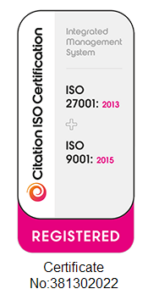How Digital Immersive Experiences Can Help Event Professionals Create Engaging Events
As event professionals, we know that creating an immersive experience is the key to engaging our audiences and creating memorable experiences. However, in today’s crowded digital landscape, it can be a challenge to stand out and make an impact. That’s where immersive experiences come in, and the brands that are leveraging them are getting ahead. In this blog, we’ll explore how brands are creating successful immersive experiences, the benefits of this approach, and some of the challenges that event professionals might face when creating these experiences.
Digital Immersive Experiences: The Way Forward
One of the most significant trends in immersive experiences is the move towards digital. Brands that are using a blended solution, for example virtual and augmented reality, interactive websites, engagement tools and mobile apps are providing their audiences with a fully immersive experience that’s memorable and engaging – whether as part of a live event, virtual event or through digital communications.
One great example is the IKEA Place app, which allows customers to visualise IKEA furniture in their homes using augmented reality. This app provides an immersive experience that allows customers to see how furniture would look in their space before purchasing, and as a result, has increased IKEA’s online sales.
Challenges in Creating Digital Immersive Experiences
While digital immersive experiences provide many benefits, creating them can present some unique challenges for event professionals. Some of the challenges include:
- The cost of creating digital immersive experiences can be significant, especially for smaller businesses and events. However immersive technology is now more widely accessible and cost-effective with the rapid rise in this trend.
- The need for skilled developers and designers to create high-quality experiences can make it difficult for event professionals to find the right talent.
- The need to keep up with the latest technologies and trends in digital immersive experiences can be overwhelming, especially for those who are new to the field.
Overcoming these challenges requires careful planning, creativity, and a willingness to experiment with new technologies. Choosing an expert partner like Open Audience who provides a one-stop-solution to unlocking opportunities and help you develop your digital immersive experiences further, with very low risk to you, your budget and your audience.
The Benefits of Digital Immersive Experiences
Despite the challenges, the benefits of digital immersive experiences are many. By leveraging immersive experiences, brands can:
- Emotional connection: Immersive brand experiences create an emotional connection between the customer and the brand, driving loyalty and advocacy.
- Sensory stimulation: Immersive experiences that engage multiple senses can create a more powerful and memorable brand experience.
- Storytelling: Immersive experiences that use storytelling can create a deeper connection to the brand and its values.
- Personalisation: Personalised immersive experiences can increase customer engagement and build brand trust.
- Virtual and augmented reality: Virtual and augmented reality experiences can provide customers with a unique and engaging brand experience.
- Gamification: Gamifying an immersive brand experience can increase engagement and drive brand loyalty.
- Interactivity: Immersive experiences that allow for customer interaction can increase engagement and create a sense of community around the brand.
- Escapism: Immersive brand experiences can provide customers with an escape from their daily lives, increasing engagement with the brand.
- Experience design: Careful design of immersive brand experiences can create a seamless, engaging, and memorable brand experience.
- Integration of technology: The integration of technology, such as artificial intelligence and the Internet of Things, can enhance immersive brand experiences and increase engagement.
Creating immersive experiences is the key to engaging our audiences and creating memorable events. By leveraging digital immersive experiences, brands can provide their audiences with a unique and memorable experience that sets them apart from competitors. While challenges in creating these experiences exist, the benefits of this approach are significant. By carefully planning, experimenting with new technologies, and seeking out the right talent, event professionals can leverage immersive experiences to take their events to the next level.

